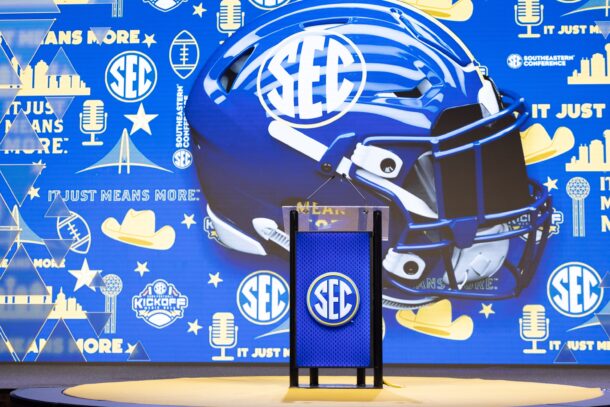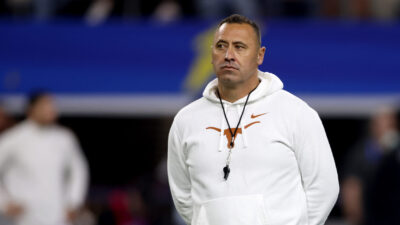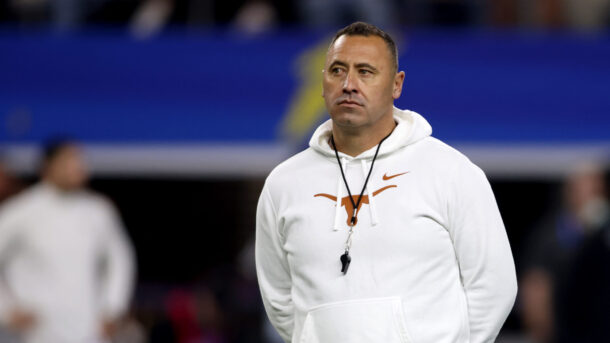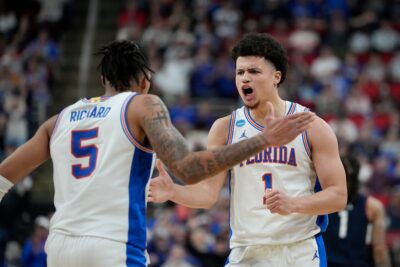Ad Disclosure
The Florida gaming compact was approved no more than a week ago and legal challenges are already on their way to put a halt to the 30-year agreement that will give the Seminole Tribe exclusive Florida online sports betting rights.
According to News4Jax, No Casinos Inc. is planning to file several lawsuits at the state and federal level to stop the compact. The Florida Gaming Compact went into effect earlier this week.
Lawsuits to delay Florida online sports betting?
Las week the U.S. Department of the Interior did not approve or deny the gaming compact, instead letting it go into effect with a non-decision.
“As a result, the Compact is considered to have been approved by operation of law to the extent that it complies with IGRA and existing Federal law. The Compact will become effective upon the publication of notice in the Federal Register,” Bryan Newland, Principal Deputy Assistant Secretary of Indian Affairs, wrote in the Department of the Interior’s approval letter.
The 30-year gaming compact is estimated to bring $6 billion to the Sunshine State over the next 30 years and officially legalize Florida sports betting. It gives exclusive sports betting rights to the Seminole Tribe, allow craps and roulette, and is estimated to provide $2.5 billion to the state in the first 5 years alone, with annual payments of at least $500 million.
The earliest date Florida sports betting can begin in Oct. 15, but challenges in court will likely delay the launch.
No Casinos Inc. will likely file lawsuits around the compact potentially violating the Indian Gaming Regulatory Act (IGRA), which states that all wagers must take place on tribal lands. The approved compact allows Florida online sports betting for the entire state, as it argues online bets are technically placed on tribal land as the internet servers that process the bets are located in Seminole Tribe casinos.
The Department of the Interior noted in its letter that the online sports betting qualifications in the compact did not run afoul of IGRA and evolving technology should not be an impediment to tribal gaming.
“In examining the permissibility of mobile sports betting under IGRA as a novel matter, the Department seeks to uphold the intent of IGRA and notes that: 1) evolving technology should not be an impediment to tribes participating in the gaming industry; 2) the pursuit of mobile gaming is in-line with the public policy considerations of IGRA to promote tribal economic development, self sufficiency, and strong tribal governments; and 3) the purposes of IGRA would be served through the improvement of tribal-state cooperation in the regulation of mobile wagering.”
Amendment 3 still a concern for No Casinos Inc.
Additionally, a lawsuit at the state level could be filed arguing the gaming compact violates Amendment 3. Amendment 3, a voter approved 2018 constitutional amendment, requires any new casino gambling laws to be approved by voters. No Casinos have argued that voters should have the final say on the legality of sports betting being offered in the state.
Supporters of the compact have argued that “sports betting” is not mentioned in the constitutional amendment and was not a common game offered in the 2018 amendment, so it should not be included moving forward.
This amendment ensures that Florida voters shall have the exclusive right to decide whether to authorize casino gambling by requiring that in order for casino gambling to be authorized under Florida law, it must be approved by Florida voters pursuant to Article XI, Section 3 of the Florida Constitution.
This would not be the first legal challenge mounted against the gaming compact. West Flagler Associates, on behalf of Magic City Casino, and Bonita Springs Poker Room filed a lawsuit against the compact in early July. The lawsuit contends the Florida online sports betting component of the document violates IGRA.
Robert is an expert on sports betting in the United States, specifically the legalization process and regulation surrounding the industry.




